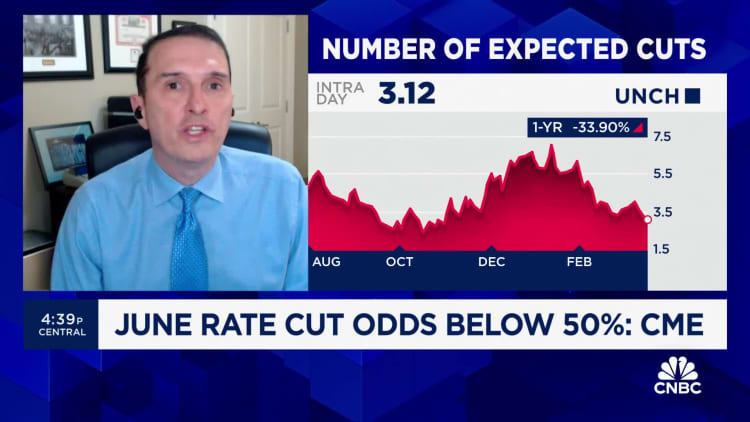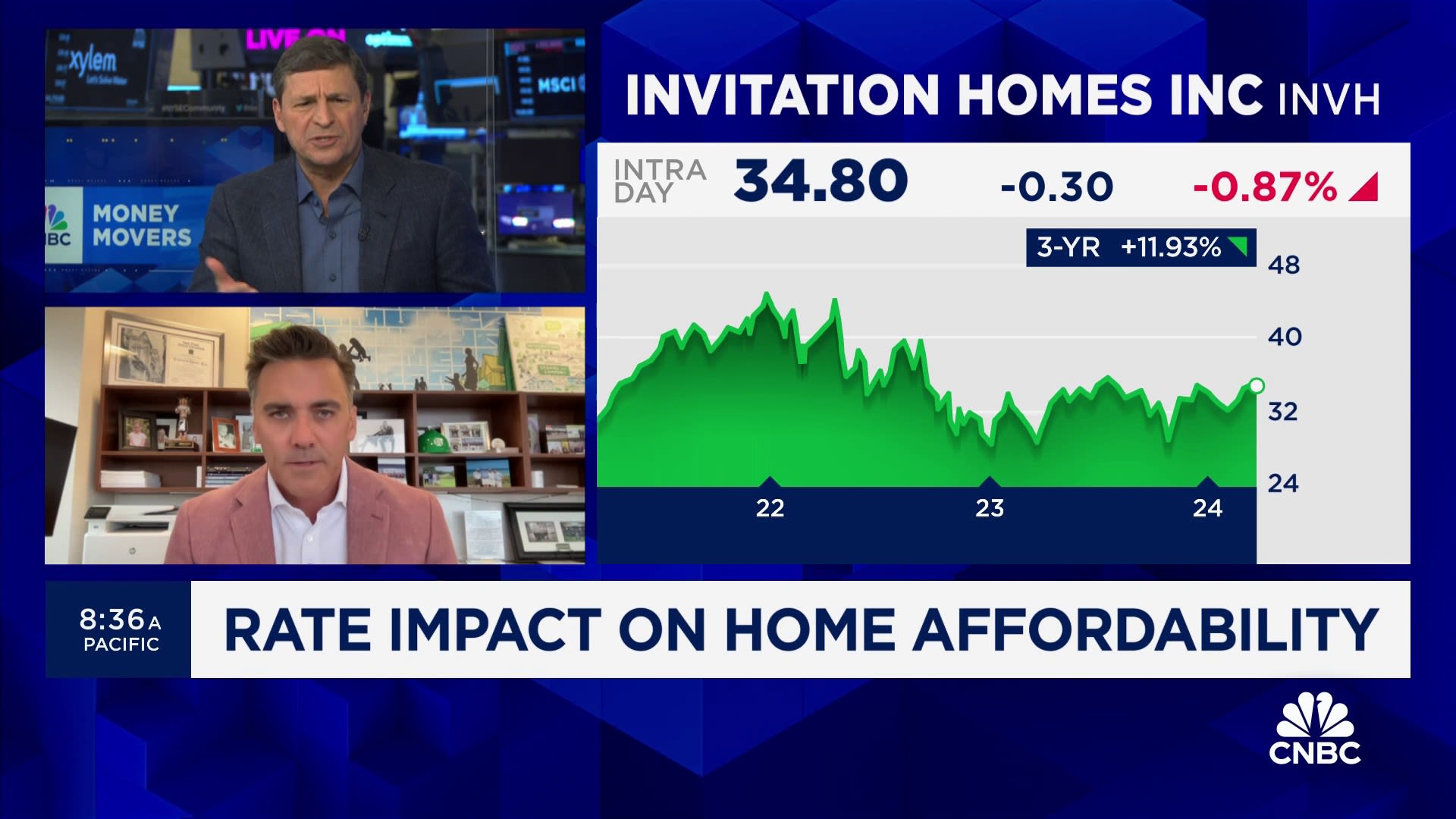Rookie Reply: “Managing” Your Property Manager
A property manager can alleviate the burden of screening tenants, collecting rents, and maintaining your property. But if you’re not careful, exorbitant fees and unexpected charges can quickly eat away at your cash flow. Today, you’re going to learn how to navigate this relationship and ensure that you’re getting these services at fair value!
In this Rookie Reply, Mindy Jensen from the BiggerPockets Money podcast and Tiamo Wright, Director of Product and Marketplaces at BiggerPockets, are joining us to help field your recent questions. First, we discuss medium-term rentals and how they differ from both long-term and short-term rentals, as well as whether you should invest in real estate while you’re in debt. We also get into real estate development and some of the different ways to fund larger projects. Looking to buy your first short-term rental property but don’t know where to start? Our experts will point you in the right direction!
Ashley:
This is Real Estate rookie episode 383. Can you invest while wrestling with college debt and much more on today’s episode? My name is Ashley Care and I am here with Tony j Robinson.
Tony:
And welcome to the Real Estate Rookie Podcast where every week, three times a week, we bring you the inspiration, motivation, and stories you need to hear to kickstart your investing journey. And today we’ll discuss how to start your real estate development with a lack of funds and what are the exact steps for buying and launching a short-term rental. Now, if you guys have a question or want to maybe drop a horror story of your own, head over to biggerpockets.com/reply and we just might pick your story for the podcast. Now, today we are joined by two very, very special guests. We have Tama, who’s an investor and director of product and marketplaces at BiggerPockets, and we also have Mindy, who’s the host of BP money, also an investor and an agent.
Ashley:
And last but not least, we actually have a guest on today’s episode to ask a question live for rookie reply, and we are going to be discussing supplies for a medium term rental and also what is a medium term rental and how is it different from long-term and short-term? Let’s say hello to Mindy and tmo, our expert panel. Welcome. Thank you for having me. I’m so excited to be here. Thanks. I’m really excited to dig into some of these questions. Okay, well let’s get into it and welcome our first guest. Mitch, thank you so much for joining us today. Live on the real estate rookie reply. It’s not often we get to bring someone on to ask their question and to also have an expert panel. So Mitch, please tell us a little bit about yourself and then hit us with that hard hitting question that’s just nagging at you to get answered.
Mitch:
Cool. Yeah, thanks Ashley for having me here. And so a little background, I actually work with BiggerPockets on the agent sales side of the business and I help agents all across the US connect with investors in their market looking to buy their next investment property. I’m here just west of downtown Denver, Colorado. I’m now in our Nevada and I own a few rental properties now. And one of ’em, we just decided to experiment with the midterm rental strategy and we had been looking at it for a bit of time now and it looked like it was going to be the best fit. So we got the place furnished and we had used a referral from one of our real estate agents on who do you use as a property manager who’s great midterm rental property manager. And a couple months down the road we got a few bookings in and I think after the second booking we got hit with some fees, about $350 in restocking fees and kind of blindsided us a bit, seemed a little excessive, but we let it go and a couple months later, after another stay, so about 82 days in total we got hit with another $450 in restocking fees.
So at this point it didn’t make sense to us a lot of things like large ticket items, 200 trash bags, 115 dish pods all used in a two days and it just kind of raised a red flag. So we just had a question. How would you approach this situation with the property manager and risk burning the bridges with somebody that was referred to you? How would you approach that?
Tony:
Yeah, great question Mitch. And I think before we keep going, I just want to define exactly what a midterm rental is. So a lot of us are familiar with short-term rentals, Airbnbs, but a midterm is basically that kind of sweet spot between your traditional short-term rental guests and your traditional long-term rental guests. So think 30 days plus we probably less than a year somewhere in that sweet spot. So we have some special guests on the podcast today, so I’d love to get your opinion first. So we have Mindy and Temo. So Mindy, I’ll kick it to you first. What is your insight? What are your thoughts here for Mitch?
Mindy:
Okay, first of all, 82 days and they stocked 200 garbage bags. Are these people having massive, massive, massive parties? I mean that seems excessive isn’t the right word. That seems almost like they are taking advantage. So my first recommendation is to go back to your contract with your property management company because the contract is the legally binding document that is going to rule your relationship with your property management company. What is the section addressing restocking and to make sure that they don’t treat this as a short-term rental because there is a difference between short-term rentals and medium term rentals. I have a medium term rental myself and I give a kickstart to my tenants. I don’t expect them to arrive with toilet paper and dishwasher pods and garbage bags. I’ve got a few so they don’t have to rush right out the day after they get there and buy all this stuff.
But I’ve got like five dishwasher pods, a few garbage bags, a couple of sponges, a couple of laundry pods definitely have the toilet paper stocked because that’s a necessity. But afterwards, everything’s on them and I make sure that they know that in advance. This is a month to month rental and you are stocking everything just like a long-term rental. So I’m wondering if your management company has experience with medium term rentals and what that entails. So first I’m going to send you to the contract and then I’m going to direct you to chatting with the property management company and asking them directly why do you think 200 garbage bags is a reasonable restock on an 82 day stay?
Tony:
We do the same thing even for our short term. We give starter kits for supplies and things like that. We give more than enough. Most of our stays are two to three days on average, but even still every once in a while we’ll have someone that uses all eight trash bags in a two nights day. I’m like, Hey, you got to go figure that out for yourself afterwards. Right. Tiana, what about for you? What are your thoughts on that?
Tiamo:
Yeah, very similarly, we were at an Airbnb this weekend and they said very specifically what they do include and what they don’t include for us. So if we want to use extra supplies that was on our own. But similar to what Mindy was saying as far as the contract, I said very early exactly what the expectations were. And I actually looked at a lot of the housing for nurses across the nation specifically in Colorado to say what were their expectations? So they expected blackout curtains, they expected good linens, good towels, that kind of thing. They didn’t expect me to restock all their toiletries every single month that they kept staying with us.
Tony:
And Tama, I think you bring up a really good point about setting expectations because what leads to less than five star reviews, it’s not necessarily missing something from your listing, it’s just that a guest was expecting something, they didn’t get it. But if the expectations are set correctly when they enter, if they know, Hey, I’m going to get eight trash bags and I’ve got to do the rest myself, even if they run out of the all eight, then they still know that, hey, that was the expectation coming in.
Ashley:
I do have something I want to add to the conversation, but before I do that, we are going to take a short break and when I come back I’m going to play devil’s advocate.
Tony:
Alright, we are back from our break and we’re hearing Mitch’s story about some issues with this property manager and I’ve given some advice, Mindy tmo, but now Ashley says she wants to play little devil’s advocate. So what do you got to say, Ash?
Ashley:
Okay, Tony, I’m actually going to play devil’s advocate and I’m going to be on the positive side for the property management company and I’m going to try to look at maybe one reason why they were doing this as a positive. So when I heard the 115 dishwasher packs, the 24 cleaning sponges and the garbage bags, all I thought of was buying in bulk can reduce costs. So in my mind, I am thinking this property management company went out and said, we’re going to get enough supplies for a year for this property so that way we only have to send someone there once we’re buying in bulk. So it’s going to be cheaper than having to restock every once in a while buying just small 10 packs of garbage bags or however much you want for each person. And I look at my own Airbnbs where we have a closet where we stock up big time and do a bulk order and fill it up.
So Mitch, my question to you would be do you think that maybe this was a reason that they were doing that to kind of buy in bulk and to save you money, but it backfired because everybody had access to those items at all times. Where my cleaners, they ration share, they’ll give each person so many things, a toilet paper out of that closet and then it’s locked up. So I’m curious to hear, could that be one of the reasonings? And they weren’t actually to be bad property management or to kind of screw you over in a sense or overcharge you.
Tony:
It’s a good point, Ash, right? But I still think even if that was the case, it almost does speak to maybe a little bit of lack of efficiency on the property manager side to not
Ashley:
Giving the free for all
Tony:
Given the free for all. Yes. Right. Yeah. So there’s probably still some feedback there that needs to be shared. Manique, what are your thoughts on that?
Mindy:
My thought is I absolutely went that route and said, oh, they bought in bulk and I’ve stayed in a lot of Airbnbs and there is always that closet. It’s not always locked, and I am one to open every single door. I’m not one to take every single garbage bag because I’m usually traveling and plus I’m not a big steeler, but I always open every door and I see that there’s these giant Costco sized bags of everything. So I absolutely think that that’s what they did, but why did they do it twice? And if they did it the first time and left the door open and everything got taken by the first guest, then that should kind of be on them to restock on their own dime because great point. There’s no way that the first guest used 115 laundry pods or whatever it was. But again, I want to go back and direct Mitch to first the property management contract, and then if there’s anything missing in the property management contract, call up the property management company and get an addendum to the contract that spells out specifically the things that are missing.
Who is going to restock? How much is going to get restocked at a time? How frequently is it going to be restocked? You don’t need to go and buy a big $20 thing of Costco toilet paper every week, but if it’s, I mean, what is that going to last three months, four months, then every quarter you expect to have this expense, but that’s what you’re expecting, just like you’re setting expectations for the guest, the property management company or Mitch needs to set expectations with each other so that you’re not blindsided like this. And if the property management company simply doesn’t understand medium term rentals, then maybe this isn’t the right property management company.
Tony:
So Mitch, a lot of insights there, a lot of perspectives here in all that. What do you feel is maybe the best path forward for you?
Mitch:
Yeah, thanks so much. I love all of these answers here and it’s really helped me put together a plan, and I can’t say it enough, it sounds like the crystal clear communication is just key, but just going back and approaching it with the positive intent and maybe a place of we’re looking to learn and taking a little ownership, but I think really getting back and setting the expectation there, getting in and writing and agreeing on it together, what our goals are. Are they realistic? Maybe we are missing something at the property. Maybe they didn’t realize there was a locking storage closet and it sounds like maybe they did have it out and the guests took advantage of it, but talking about how we’re going to communicate with each other in the future. Yeah, like Mindy mentioned, definitely a red flag that the restock was done and there was really no communication on it. So yeah, I love these answers and I think getting back to the contract, looking deep into it and then approaching the property manager with the positive intent and really defining what that relation looks like moving forward.
Tony:
Yeah, I love that mention and I hope you’re able to find a good solution with this property manager. I just have one funny story on an owner’s closet that I want to share with you guys. One of the first Airbnbs that we bought there was an issue with the owner’s closet door lock. So it was reversed. So basically it was always set to be unlocked, right? So we couldn’t get it to lock itself, and whenever you put in the owner’s code, it would only unlock it. So the door was just always unlocked. So we took it live with it being open. Luckily we didn’t have any guests that rummage through it, but just triple check before you take your listing live that your owner’s closet actually locks. Alright, this next question is from Jared. Jared says, what’s up Ashley and Tony, I just graduated from college with a degree in engineering.
I’ve been listening to your podcast every day on my way to and from work, sometimes even at the gym. I want to get into real estate investing, but I’m currently paying $2,000 a month in student loans and will not be able to receive a bank loan. I’m so young. So my goal is to house hack, but I don’t see a way to accomplish this at the moment. Do you think I should wait a few years to pay down my loans and get my DTI more manageable? Please help. Alright, since we’ve got a few voices on the podcast today, we’re going to do this rapid fire. So you guys got 60 seconds top. I’m going to have the producers cue the Grammy music if you guys start going too long. So Ash, let’s go with you first. What do you got for Jared?
Ashley:
Okay, so the first thing I’m thinking about,
So the first thing I think of is myself personally. When I started investing, I had farm equipment debt, I had student loan debt, and what I did was I simultaneously invested and I used any cashflow that I had to pay off all of my loans. So that worked for me. In this case, what I would do, the first step would be to, if you can actually get approved for a loan, if you have money for a down payment and you can get approved for a loan even with your high student loans, then I would definitely recommend going in house hacking because you are going to hopefully, if you get the right deal, decrease your living expenses and you can use that extra money you’ve saved to rapidly pay down your student loans.
Tony:
Great job. Tama. You’re up next. What do you got?
Tiamo:
Yeah, I would say something pretty similar. It sounds like $2,000 a month, probably a bit too much for you to actually qualify for the DTI, but there’s a lot of programs out there that you can actually have quite a high debt and also you could have quite small amount of loan payment or loan down payment to put down. So I’d recommend that if not think about for the next year, live as cheaply as humanly possible. Could you be house sitting for people? Could you be dog walking their dogs and sitting for them? So I’d recommend live as cheaply as possible because I think house hacking is your next best option to get that started. I would not do any other investing beforehand because it’s a little bit too risky for having $2,000 a month of debt.
Tony:
All right, Mindy, what do you got for Jared?
Mindy:
Well, first I have a bit of a self-promotional plug. I host the BiggerPockets Money podcast where we talk about money questions and money problems all the time. So Jared, you need to be listening to me in addition to Tony and Ashley and their awesome show. Now I’m going to plug specifically episode BiggerPockets money 35 because Craig Curl up came in and shared his story, which is almost identical to yours. He had, and it’s been a minute since we recorded with him, but it had something like $80,000 in student loan debt. And instead of paying that off, he bought a house hack, lived in it, rented one unit and lived in the other while Airbnbing that other unit and threw all that money like Ashley said, into his debt. So he was able to eventually pay off his student loans by his investments. But also house hacking isn’t a one-way.
Street house hackers need tenants too. So you can reduce your housing expense by being what a house hackee a house hack tenant. Also, there are plenty of cities in this nation where the Airbnb rules state that you can only Airbnb your primary residence, and there’s a lot of people who own duplexes who would love to Airbnb half of it, but can’t because they don’t live there. So I would look for that sort of situation where you can either get a break on your rent or even a portion of the short-term rent that the landlord is collecting simply because you’re helping manage their property. Then bonus, you get short-term rental experience at somebody else’s short-term rental. So sorry, I know that wasn’t 60 minutes. Go ahead and play the music.
Ashley:
No, it definitely wasn’t 60 minutes. You were great. You were under 60
Mindy:
Minutes. Yes,
Ashley:
I came out of 60 minutes. Mindy, one thing I do want to add though is that you forgot to mention with Craig is he also slept on the couch that he rented out all the bedrooms too in his unit. So that’s to take it even to the extreme,
Mindy:
Yeah, he was hardcore with his house. Heck, and you don’t have to be that hardcore, but you could. One last thing is the $2,000 a month your minimum payment, or are you throwing extra money at it to pay it off quicker? Maybe you pull back if that’s the case and you start saving some of that money for your down payment.
Tony:
Yeah, Minnie, you wrap my mind. That was my next question as well, because two grand does feel a little bit high. So Leah, to your point, can you pull that back to just pay the minimums to reallocate those resources somewhere else? If you guys are looking for a good episode on the house hacking and using creative financing, almost episode 2 61, we had Nancy Rodriguez, she was from Love Is Blind, one of the seasons, right? But she used a loan from a company called naca, NACA, the Neighborhood Assistance Corporation of America. And guys, NACA has I think, the best loan product that I’ve ever seen for primary residences, it’s 0% down. There are zero closing costs, and their interest rates are usually about a point lower than prevailing interest rates, and you can use it for multifamily up to four units. So Jared, if you can go out and get approved for this NAL loan, now you’ve got a loan where you don’t have to worry about your down payment, right? You got literally almost no closing costs. I think Nancy got a refund at closing because she got a credit from the seller. So if you can check episode 2 61 with Nancy, look up the naone. It’s a great resource, Jared, to help you start house hacking the way that Mindy tmo and Ashley all talked about.
Ashley:
We are going to move on to our next question, but before we do, we’re going to take a short break and we’re going to be back with somebody who actually built their first property with new construction and now they want to be a developer. Okay, thank you so much for coming back with us for our next question with April. So April said, I just bought my first home, a new construction in September. My plan is to rent it out after a year eventually. However, my goal is real estate development, despite having a good credit score, I currently lack the funds needed for this venture. I’m considering using seller financing for the land. But the challenge is that even with this arrangement, I still don’t have sufficient funds for both the new construction and using the land as collateral. I’m seeking advice on to whether to pursue this path or if you have an alternative suggestion to help me achieve my goal of becoming a six-figure developer. Any guidance would be greatly appreciated. So tmo, I’m going to kick this one to you first since you do have some experience in commercial development.
Tiamo:
So a little bit less of the residential. It sounds like this question might be tied a little bit more residential, but I used to do commercial development in downtown Denver. So think about some of the best breweries you’ve been to think about some of the coworking spaces, self storage, that kind of development. And so the one thing I’d say is definitely talk to your city. Go to the city, figure out some of the opportunity zone thinking about residential. Make sure that you know what you can and can’t build in certain areas because even by going to some of those events within the city, downtown Denver has a downtown Denver partnership. You can actually learn quite a bit from those organizations to make connections with some of those developers that are around you. So city, lots of requirements, lots of rules, lots of regulations. You should know them, you should get really familiar and very comfortable with them, but I think that would apply also to residential.
Ashley:
Okay. And Tony, what are your thoughts? I know you’ve looked into doing some kind of development when you were looking at that property in West Virginia, so what would be your advice about building from the ground up?
Tony:
Yeah, April, I think that this is your goal, super commendable. Don’t feel like it’s out of reach just because you don’t necessarily have the capital. The funds are just one piece of the puzzle. So I think if you can find a killer deal and you can kind of map out that vision, then the next step is just finding a capital partner who can kind of bridge that gap for you. Because if you find a good enough deal, I would assume there’s a lot of people out there who have money sitting in their savings account right now that’s gotten eaten up by inflation over the last 12 to 18 months. Who would be happy to put this into real estate, which is appreciated over the last 12 to 18 months pretty substantially. So find that capital partner. So maybe just start small, do some infill development. I can’t remember which episode it was, but if you look up Donovan a Dero, Donovan a Dero, we interviewed him on the rookie podcast and he was doing infill new construction like town homes in Texas. So go back and listen to that episode. But he financed all of that new construction using partnerships. So don’t feel it just because you don’t have the funds of April that you can’t make this happen.
Ashley:
And Mindy, what would be your advice for April? Okay,
Mindy:
My advice is to connect with a developer. I love Tia O’s suggestion to learn the rules and regulations of whatever city you’re looking to start developing in. But connect with a developer and ask them if you can start learning from them. But here’s the caveat, don’t just say, Hey, would you teach me everything? Make a list of the skills that you have. Not real estate skills necessarily, but any skill that you have, make a list of those and offer to do things for the developer in exchange for learning from them, connecting with the developer and just asking them, Hey, can I learn? Everything is a great way to get shot down when you don’t have anything to offer. Some developers are, this is going to sound ageist, but I’m old too, so I’m going to say it anyway. Some developers are older and not very good with social media or technology.
And if you can help them in areas that they have pain points and relieve their pain points, they might be more than excited to help you out. Just sharing their knowledge and how do you meet developers? Go to meetups, TBOs suggestion for the neighborhood development area, the BiggerPockets forums. Put it out there that you’re looking to meet developers and you will be surprised at who is all of a sudden, oh, I know a developer, I’d love to introduce you. It’s Bob. He’s right over here, let’s go talk to him. But just putting it out there and being friendly and being open to connections is huge.
Ashley:
Yeah, I 100% agree with you, Mindy, and just asking the people around you, it might surprise you who, your sister, your brother, or your parents know. My dad has the most random associations with people, and it is always great to make those connections. So great advice. Well, thank you very much panel. And we’re going to move on to our next question. And this question is from Kai Menser. As a rookie, I’m becoming overwhelmed by the best process and sequence of events that need to take place from interest in buying a short-term rental in the first booking. What is your recommended sequence of events? So is it remodeling, acquiring accountant, cost segregation study? When does material participation start? When do I start checking costs? If and when do you start an LLC? When do you ensure it, et cetera? So my strategy is basically where do I want to a vacation or where do I want to live when selecting a short-term rental? So today we’re going to turn it over to the experts that actually use data and analytics to choose a short-term rental destination. So Tony, let’s start with you.
Tony:
So Kai, first thing I’d say is you’re thinking about step 30 when you should really just be thinking about step one. And I think that’s an issue we see from a lot of Ricky Investors is they start, we get people who start asking about, well, I’m so worried about how am I going to buy my third property? And I ask, well, how many properties do you have today? They’re like, zero. Well, why are you worried about property three when you should be focused on property one? So I think the very first thing Ka you should be doing is choosing your market, right? That’s the very first thing you should be doing because I see a lot of rookies who, they’re scattershot all across the country. They’re analyzing the deal here, doing one over there, doing one up there. So choose your market first, and that really comes down to knowing what your purchasing power is.
So how much capital do you have available to deploy? What loan amount can you actually get approved for? You put those two things together, you get your purchasing power, and then think about what your specific motivations are for investing in real estate. Is it cashflow? Is it the tax benefits? Is it depreciation? Is it you just want to subsidize the cost of your vacation homes? Because each one of those four motivations will dictate a slightly different market selection strategy. So the very first thing you need to do, and I can go on and on, but the very, very first thing you need to do, Kai, is choose your market and make sure that the market supports your ultimate investment goals.
Tiamo:
Yeah, tying off of that, I would say choose your market and educate yourself on that market. And then shameless plug, build your team on biggerpockets.com, and if you want to go in talking to a lender or an agent, knowing what you know. So there’s a bunch of research that you can do. You can inform yourself. Don’t just call an agent, call lender and say, you tell me all the things I don’t know. Go in educated. Once you pick your market, once you’ve done some of your research, they’re going to guide you, they’re going to help you and support you, but you want to make sure you do a little bit of research and then find exactly what Tony said, know what your purchasing power is going to be for this property, but find an agent, find a lender and get started. Because why are we talking about a cost segregation? What it maybe short-term rental isn’t for you? Maybe a long-term rental isn’t for you. Maybe we don’t want to do a cost egg at all. Maybe there’s other things that we want to be doing, but let’s start with educating yourself about the market and what maybe a rental in that market’s not going to work for you. So start there and then definitely build your team from that. I
Mindy:
Like what both Tony and Temo had to say. This sounds like a classic case of analysis paralysis. He’s got a lot of the lingo down. And like Tony said, you’re on step 30. Let’s go back to step one. You’re interested in buying a short-term rental. Why do you want a short-term rental? And where do you want it? Like Tony said, what are the rules there? Because I want a short-term rental in downtown Denver. Well, the rules say you can’t have one there unless it’s your primary residence. So make sure the rules of the location that you’re looking at, and then start from there. Start looking like Tiao said, get an agent and start getting listings and start looking. Know what a good deal looks like in the market that you have chosen because you’re not going to be able to pounce on a great deal or a good deal or even a mediocre deal if you have no idea what’s going on in that market. I’m a huge advocate for learning the market that you’re interested in. And maybe there’s two, you’re not sure if you want to do it in San Diego or in Fort Lauderdale. Great. Start getting both of those, but don’t start getting listings in a hundred different markets and trying to juggle all of this stuff. I think that this questioner is trying to get ahead of himself, and really you need to go back to the very basics. Where are you going to buy? What are the rules there? How much can you afford? Like you guys said,
Tony:
Mindy Tiao is super grateful that both of you joined us today. So before we let you go, we got to get one last piece of wisdom, Minnie, we’ll start with you. So give us one piece of parting advice for the rookie audience.
Mindy:
Oh, for our rookie audience. For your rookie audience. I want to say education is imperative. You need to educate yourself what you’re doing by listening to the rookie channel, but also you need to know your market. I am such a huge proponent of learning what a good deal looks like in your market so that you can be ready to pounce as soon as it pops up online. I’m a huge proponent of the MLS and finding deals online there. So get an agent, start getting listings and start learning what a great deal looks like in your market so you are ready to act as soon as you can.
Tony:
Love that. Tiana, how about for you? What do you got? For us,
Tiamo:
I would highly recommend going to biggerpockets.com, but I would recommend for talking about Kai specifically, I would say go to back slash smarter S-A-R-T-E-R, and that is a step-by-step, starting with your strategy, your market, your acquisition, if you’re renting or rehabbing, tracking it all the way to exit, and then how do you do it again and again, I would start at smarter. It will connect you to the calculators and the forums to learn and educate yourself and all the different finders that we have to connect you with various folks. It’s a step-by-step guide, wherever you are, maybe your past strategy, maybe you’re past the market phase, it’s going to guide you in those other additional advanced steps as well. So I’d highly recommend going to.com/smarter.
Ashley:
Thank you so much, Mindy and TMO for joining us today. And also a big thanks to Mitch to coming on and asking his question. It’s not always easy to be vulnerable that your investment is not going the way that you had actually planned. So we really appreciate Mitch taking the time to come here and share what he had going on, and hopefully some rookies can learn from his experience and what to do if they come across that. Thank you everyone for joining us for this week’s rookie reply, and we will see you next time.
Help us reach new listeners on iTunes by leaving us a rating and review! It takes just 30 seconds and instructions can be found here. Thanks! We really appreciate it!
Interested in learning more about today’s sponsors or becoming a BiggerPockets partner yourself? Email [email protected].
Note By BiggerPockets: These are opinions written by the author and do not necessarily represent the opinions of BiggerPockets.













